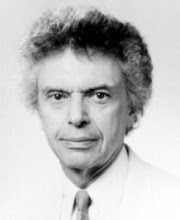How Doctors Think
In his new book How Doctors Think, Jerome Groopman critiques contemporary medical education and training. He states that doctors are leaning toward research and statistical evidence, instead of experience and expert opinion, out of laziness and misplaced deference to authority. Consequently, the principle of "evidence before acting" will lead to physicians who stop thinking, stop evaluating each patient as a unique human being, and stop applying their knowledge to the peculiarities of the person before them. Many "bean-counter" doctors recommend treatments that are seemingly supported by statistics but may not be appropriate for the person they are facing. Groopman urges doctors to become more conscious of their own feelings, emotions, responses, and choices, and to promote a greater collaboration with patients.
Groopman also suggests that the values, attitudes, and behavior of a doctor matter far more than the reputation of the institution at which he or she works. He also cautions doctors about the reliance on electronic decision aids, which might actually encourage more mistakes, by distracting the physician away form what should be his primary focus: the patients' own story. Accurate diagnosis requires an investment of time to listen, observe, and think. Groopman's repeated encouragement to the doctor is: "slow down."
There are significant parallels in the field of psychotherapy with the emerging pressure from insurance companies for "evidence-based" practice. The claim that a specific type of psychotherapy should be authorized for a class of symptoms, ignores the uniqueness of the client as well as the character and skill of the specific psychotherapist.
Groopman also suggests that the values, attitudes, and behavior of a doctor matter far more than the reputation of the institution at which he or she works. He also cautions doctors about the reliance on electronic decision aids, which might actually encourage more mistakes, by distracting the physician away form what should be his primary focus: the patients' own story. Accurate diagnosis requires an investment of time to listen, observe, and think. Groopman's repeated encouragement to the doctor is: "slow down."
There are significant parallels in the field of psychotherapy with the emerging pressure from insurance companies for "evidence-based" practice. The claim that a specific type of psychotherapy should be authorized for a class of symptoms, ignores the uniqueness of the client as well as the character and skill of the specific psychotherapist.


<< Home